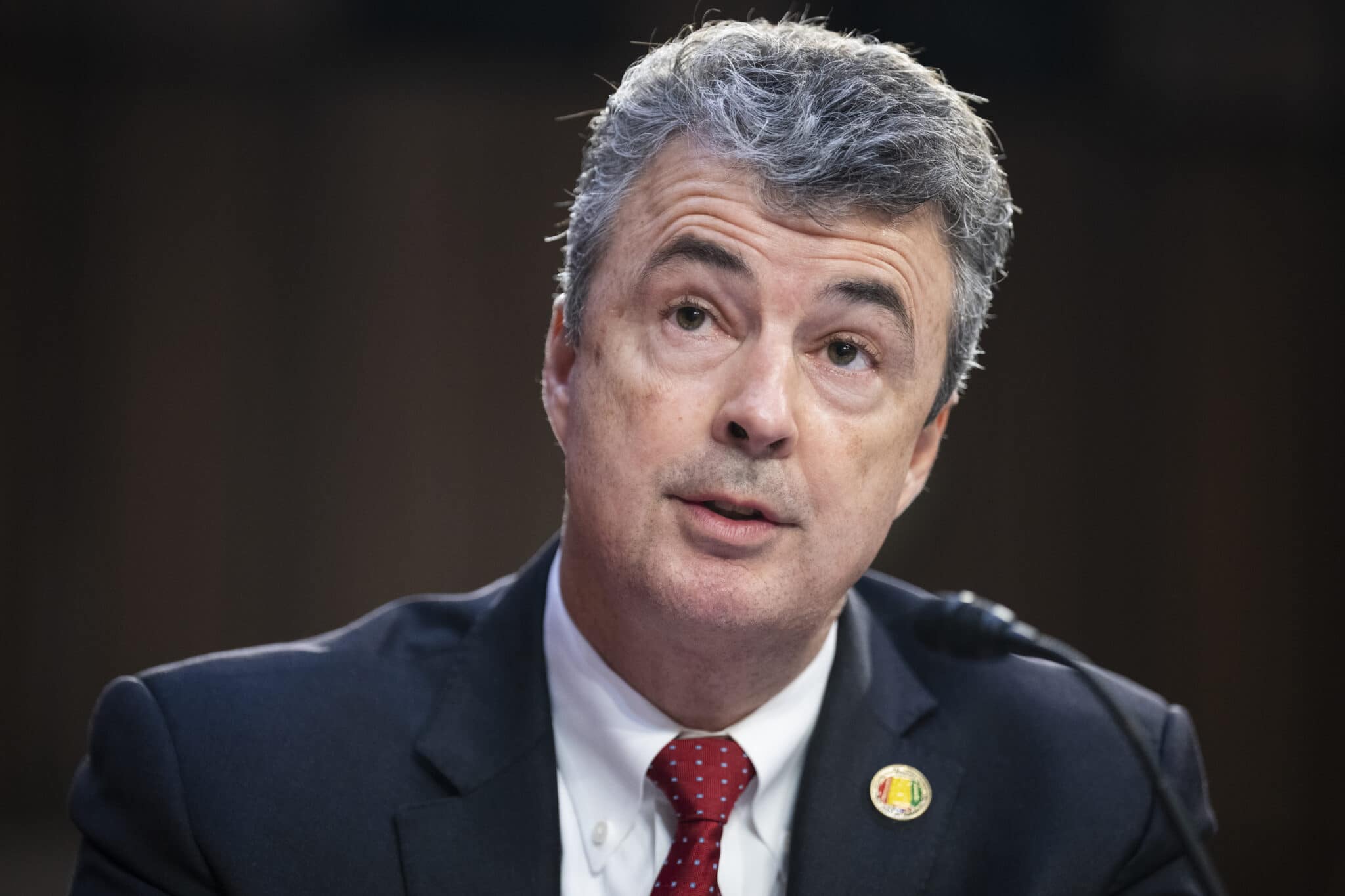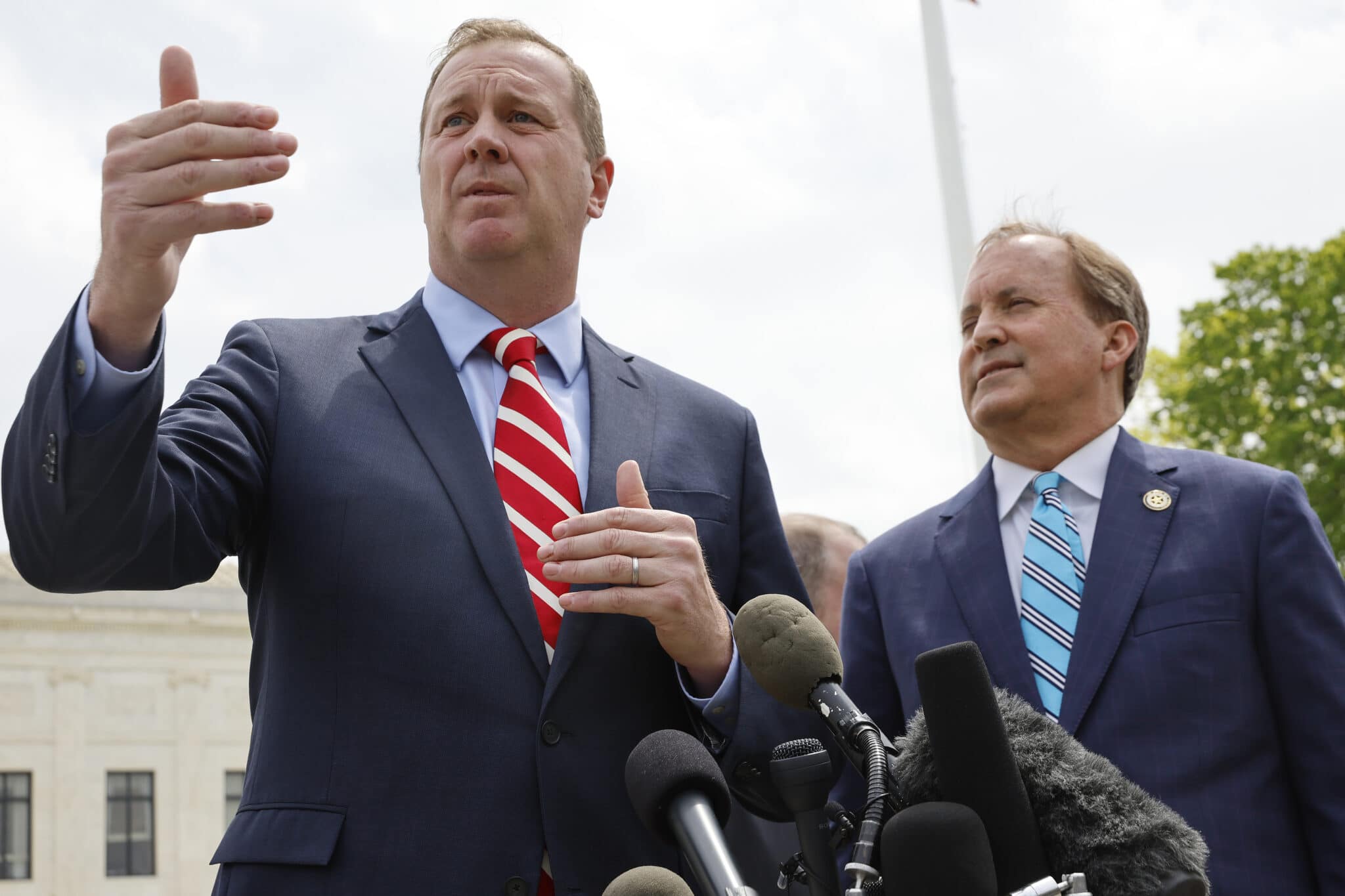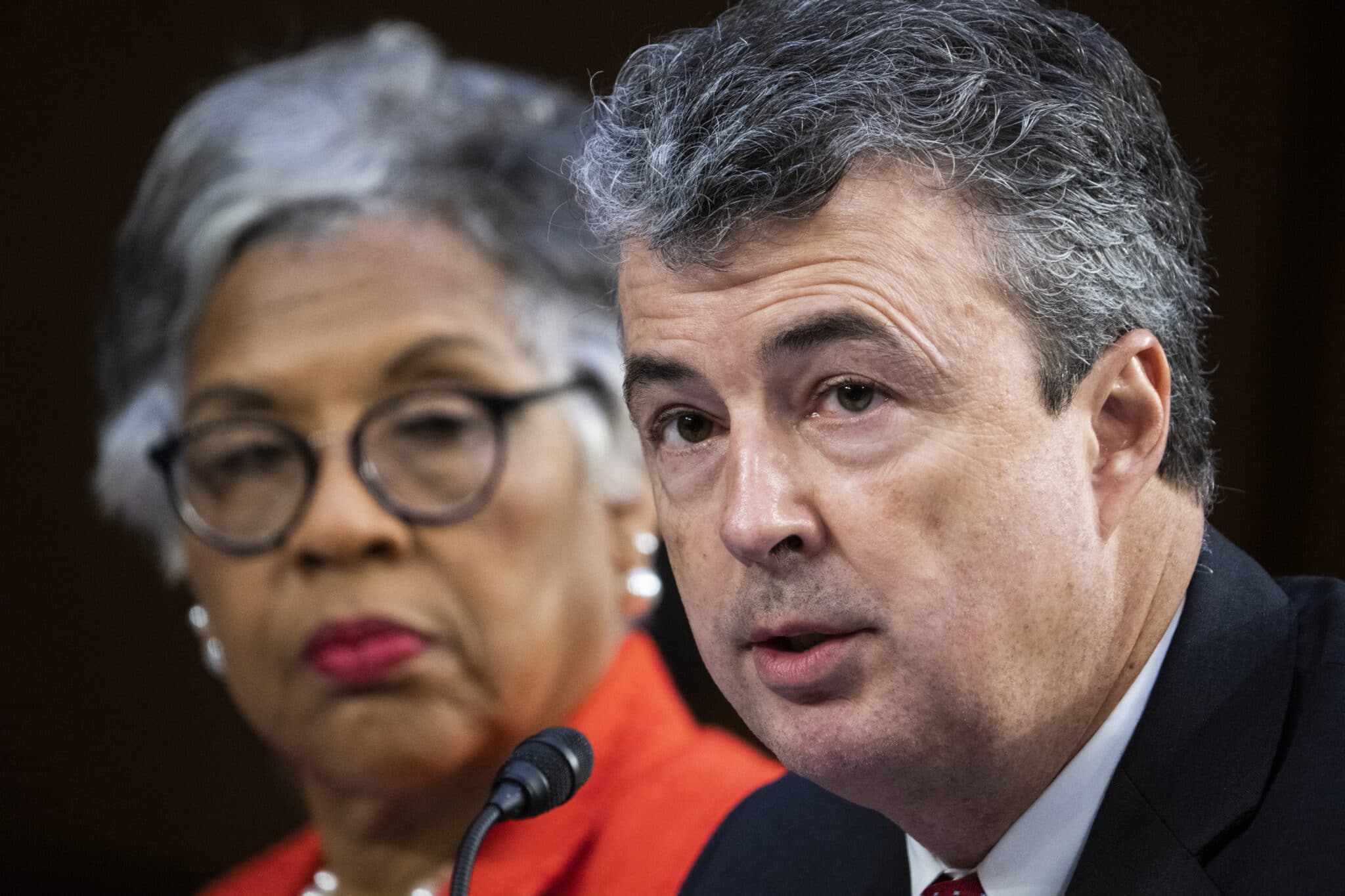UNITED STATES – MARCH 24: Steve Marshall, attorney general of Alabama, and Rep. Joyce Beatty, D-Ohio, testify on the fourth day of the Senate Judiciary Committee confirmation hearing for Judge Ketanji Brown Jackson, President Bidens nominee for Associate Justice to the Supreme Court, in Hart Senate Office Building on Capitol Hill, on Thursday, March 24, 2022. (Tom Williams/CQ-Roll Call, Inc via Getty Images)
Alabama state officials have attempted to use the Supreme Court’s ruling on abortion as a way to ban gender-affirming medical care for trans youth.
According to Reuters, Republican state attorney general Steve Marshall urged a federal court to drop a restriction on the state’s ban of trans medical care.
The Republican-dominated ban was blocked from enforcement in May by a Trump-appointed federal judge who said that the state failed to provide “credible evidence to show that transitioning medications are ‘experimental’”.
In a brief filed on Monday (June 27), Marshall argued that, since the Supreme Court’s decision to overturn Roe v Wade, the state now has the ability to restrict hormone blockers and other medical therapies for trans youth because they are not “deeply rooted in our history or traditions”, echoing the words used in the Supreme Court’s ruling.

The incident in Alabama is believed to be one of the first-known citations of the Supreme Court’s ruling since its official declaration on 24 June on a subject outside the realm of abortion-based healthcare.
However, as the legal director of the National Center for Lesbian Rights, Shannon Minter, told HuffPost: “It won’t be the last.”
Despite Supreme Court justice Samuel Alito’s reassurance that the majority opinion’s ruling should not “doubt on precedents that do not concern abortion”, several state and city officials have either accidentally or purposefully cited the ruling in efforts to ban contraceptives and healthcare.
The Kansas City hospital chain St Luke’s Health briefly stopped distributing the contraceptive Plan B, sometimes known as the morning-after pill, on Tuesday (28 June) after concerns that doctors would face criminal charges if they were sold.
The contraceptive eventually became available on Wednesday (29 June) after officials in Missouri clarified the statement that they had released shortly after the Supreme Court’s ruling.
Several Republican politicians have also suggested approving laws that would prohibit LGBTQ+ activity in certain states. Republican Texas attorney general Kent Paxton told NewsNation that he is “willing” to defend a ban on gay sex in the state.

“Yeah I mean, there’s all kinds of issues here,” he said in an interview. “But certainly, the Supreme Court has stepped into issues that I don’t think there was any constitutional provision dealing with. They were legislative issues, and this is one of those issues and there may be more.”
Supreme Court justice Clarence Thomas suggested that he would like to reconsider cases that granted the right to same-sex marriage, same-sex relationships and contraception in his concurring opinion on Roe V Wade.
